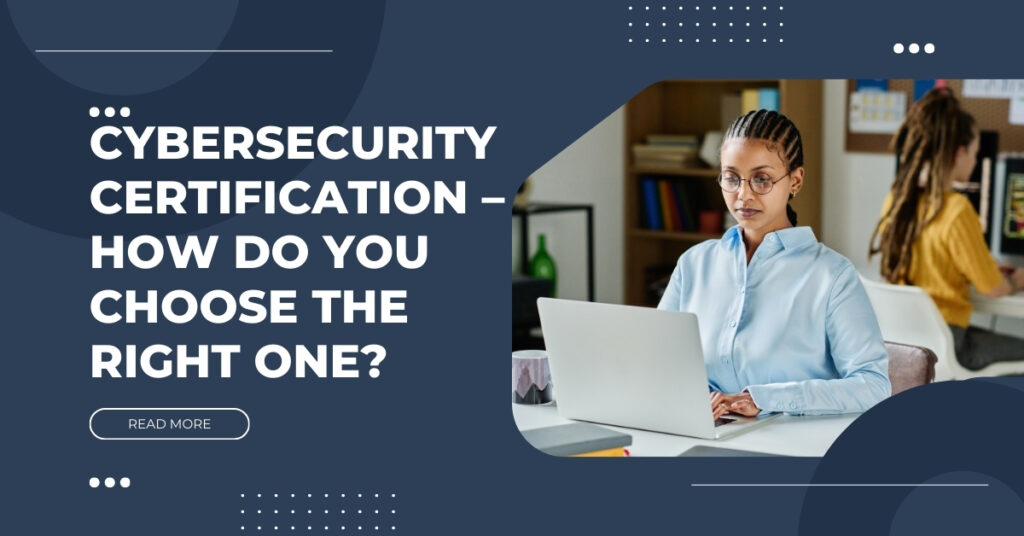Why AI and Machine Learning are Critical for Effective Cybersecurity Threat Detection
Why AI and Machine Learning are Critical for Effective Cybersecurity Threat Detection In the rapidly evolving environment of digital technology, the role of artificial intelligence (AI) and machine learning (ML) in cybersecurity can boost threat detection and prevention. Utilising these technologies can empower the security teams to identify hidden risks and improve overall security measures. Emerging as a main ingredient in cybersecurity decision-making, understanding, learning, and acting more effectively are critical requirements to reduce the likelihood of cybersecurity breaches within the organization. Due to the importance of threat detection and protecting organizations from vulnerable attacks, cybersecurity career opportunities are opening up to enhance the expertise of professionals to safeguard digital assets. Protecting sensitive data in real-time creates a constant need for skilled professionals who can stay ahead of the complex and emerging threats of the cybersecurity. Key Roles of AI and ML in Cybersecurity Integrating AI and ML in the field of cybersecurity offers several unique advantages, like automating processes, using data analytics to identify patterns and anomalies, and providing sophisticated tools to exploit vulnerabilities. Preventing cyber threats with advanced security measures has enhanced the need for cybersecurity certification training to develop more sophisticated ways. Understand the significance of augmenting human intelligence with advanced algorithms as both AI and ML play lead roles in improving the overall security posture of your organization. Take a look at how these technologies play leading roles in several key areas – Learning long-term security strategies in the evolving digital environment requires expertise in cybersecurity strategy development, risk management, and proactive security measures. Navigate the complex cybersecurity domain only under expert guidance. Avail the benefits of specialized training programs from leading IT Security Training Institutes like insureTech Skills to take your skills to the next level. Understanding AI and ML for Effective Threat Detection AI and ML empower professionals with real-time insights and automated responses to tackle emerging threats. Gaining know-how in advanced algorithms and data analytics helps in behavioral analysis, real-time monitoring, and pattern recognition. Cybersecurity certification training helps you to identify cyberattacks, malware, or insider threats more quickly and accurately. Look at the following advantages to gain expertise in AI-powered tools and ML algorithms to respond to threats before significant damage occurs – The diversified aspects of AI and ML in the cybersecurity point out the future of AI in cybersecurity careers. Learn and implement the most effective cybersecurity defenses to counter changing attack techniques. insureTech Skills provides the scope to stay ahead in your career with its hands-on learning and real-life project studies. Benefits of AI and ML in Cybersecurity Courses AI and ML are transforming the field of cybersecurity with advanced threat detection and improved response. Most leading cybersecurity certification training programs include AI and ML in their study materials to provide the students with the opportunity to boost their practical skills. Boost your cybersecurity capabilities by consistently exploring this high-demand skill and learning the evolving threats to counter them accurately and effectively. insureTech Skills opens up opportunities for cybersecurity professionals with its updated training guides and study materials. Focusing on fulfilling your cybersecurity skills in demand, we offer you expert guidance to learn proactive defense strategies to stay ahead in this digital environment and help organizations maintain robust cybersecurity postures. Being a part of transformative cybersecurity education will open your diversified career opportunities and help you to contribute significantly!! AI and Cybersecurity Job Trends Due to the integration of AI in cybersecurity, this job market is transforming rapidly and creating a surge in demand for skilled professionals. The key trends are for cybersecurity experts who understand AI-driven attacks and defenses, including their risks. Hence, most high-demand jobs include cybersecurity analysts, incident responders, and security managers among others. As AI and Cybersecurity job trends continue to evolve, always stay updated on the latest trends and technologies to remain competitive in this rapidly growing field. Machine Learning Cybersecurity Course Incorporating advanced machine learning techniques into cybersecurity practices, these courses cover various techniques like neural networks, clustering, and support vector machines. Customized for cybersecurity applications, the Machine Learning Cybersecurity Course provides you with the scope to gain expertise in intrusion detection and malware classification. insureTech Skills offers many advantages like hands-on labs and projects, including real-world cybersecurity scenarios to make your cybersecurity career stay ahead in this competitive marketplace. Open up your career opportunities in this high-demand field and be a part of the global cybersecurity workforce by acquiring the valued skills. Best AI Courses for Cybersecurity The significant role of AI in the digital era results in some of the best AI courses for cybersecurity professionals – insureTech Skills offers you comprehensive training programs to learn advanced AI techniques and implement the best cybersecurity practices. Equip yourself with specialized skills to create robust AI solutions in real-world cybersecurity scenarios. Ethical Hacking and AI Courses Designed to equip professionals with key skills needed to protect AI systems from cyber threats, Ethical Hacking and AI Courses offer you the scope to level up your practical capabilities – insureTech Skills has specialized training programs to escalate your career opportunities in AI security and ethical hacking. Future of AI in Cybersecurity Careers With the increasing acceptance of AI in the field of cybersecurity, the future of AI in cybersecurity careers looks promising. The rapid evolution in AI technologies has resulted in more expectations of its pivotal roles in threat detection and mitigation. Stay continually updated with the latest trends and technologies to remain relevant in the dynamic field of cybersecurity. Conclusion Using AI and ML in cybersecurity has become essential to boost security in diversified areas and open up promising career opportunities at the same time. Understanding the uptrend for cybersecurity skills in demand, insureTech Skills offers trending courses focusing on AI and ML in the field of cybersecurity. Avail the benefits of our expert guidance and relevant practical experiences to excel in this rapidly evolving environment. We help you gain expertise and create your pathway to high-paying cybersecurity jobs. Being a part of
Why AI and Machine Learning are Critical for Effective Cybersecurity Threat Detection Read More »







